Immerse Yourself in a Digital Garden at Artechouse NYC
Uncover an underground digital art space where spring is blooming!


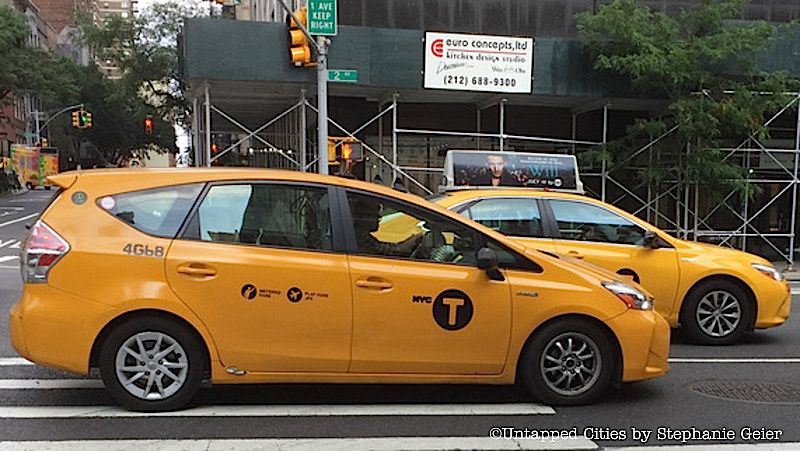
In our NYC Fun Facts column, we’ve been exploring elements of New York City that are common, even symbolic, yet often overlooked in terms of how they came to exist. We’ve already covered the stories behind the “I Love NY” logo, the iconic Greek coffee cups, Nuts4Nuts carts, and the nickname “The Big Apple.” Well, next up is another aspect of the city that you see everyday, but probably don’t think twice about—why are most New York City taxi cabs yellow?
We’ll start in 1907, when businessman Harry N. Allen started the New York Taxicab Company, bringing the first gas-powered cabs to New York City. These 600 cabs, imported from France, were—surprise—red and green!
A taxi historian, Graham Hodges, said owners of cab companies would paint their fleets a distinct signature color, resulting in cabs ranging from brown, white, red, and even checker ones. And some were yellow.
After a few years, two big cab companies decided that yellow was the way to go, with both ultimately contributing to the tradition of yellow cabs in New York City. These companies were the Yellow Cab Company, started by John Hertz in Chicago in 1910, and the Yellow Taxicab Company, which was incorporated in New York by Albert Rockwell in 1912.
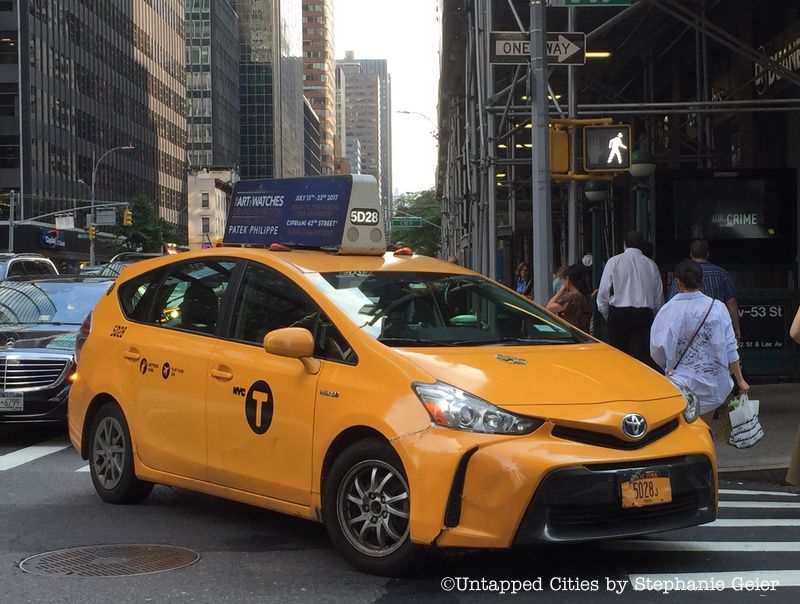
Why did these guys want yellow? According to a popular account, Rockwell chose yellow to please his wife Nettie, who favored the color. The couple went to Europe and saw the crucial role of taxis in the cities they traveled to, inspiring Rockwell to start his own cab company, which he did. Perhaps unsurprisingly, Rockwell didn’t want taxis from other companies to be yellow, and even used legal action to try to stop cab owners from using yellow.
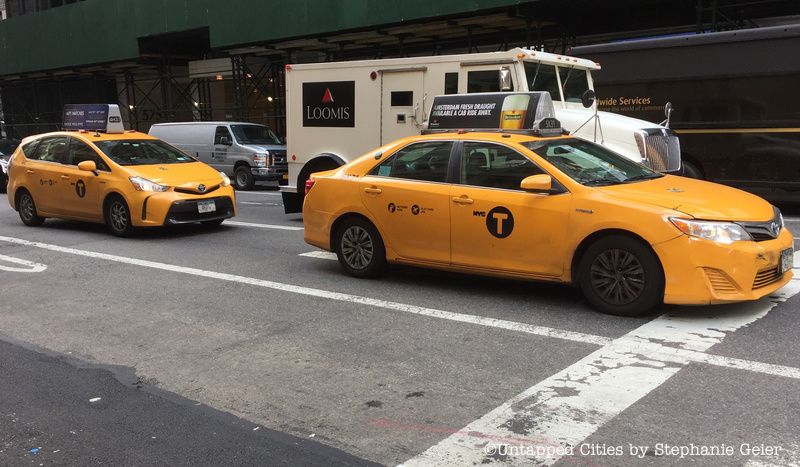
However, according to Allan Fromberg, the Deputy Commissioner for Public Affairs at the NYC Taxi and Limousine Commission, it was Hertz who was the true driving force behind the influx of yellow cabs in New York City. As the founder of the Yellow Cab Company in Chicago in 1910 (later incorporated in 1915), Hertz read a University of Chicago study finding that yellow was the most prominent color seen from a distance. Understanding yellow would stand out the most to pedestrians seeking cabs in busy streets, he painted his cabs accordingly.
Soon enough, according to Fromberg, yellow became “an industry trend.” This trend spread as Hertz began organizing cab companies in other cities, including New York City. By 1925, he had 2,700 taxis.
In the following years, the taxi industry thrived. However, it reached a bump in the road during the Great Depression, which exacerbated tensions between cabbies seeking work. (At this point in time, not all taxis were yellow, although they were quite common).
To address this, the city passed the Haas Act of 1937, which established New York City’s medallion system and restricted the number of licensed cabs. Under this system, licensed taxis with medallions were the only cabs that could pick up hailers.
Recognizing the need to distinguish between medallion taxis and the rest of the cabs, a 1967 law was passed to help New Yorkers tell the difference. The law mandated that all medallion cabs be painted yellow—Dupont M6284 yellow or a similar shade, to be specific. This is the color we see on taxi cabs today, flooding the streets during rush hour.
So yes, most New York City taxis are their signature color because of a regulation passed 50 years ago. But it’s fair to say that it was the ideas of two earlier businessmen, Hertz and Rockwell, that paved the way for cabs to be yellow specifically.
Since its early days, the yellow cab industry has grown and solidified. However, it has lately been declining with the rise of Uber and other ride-hailing apps. There are currently about 13,587 yellow cabs, with the average number of daily taxi trips decreasing by over 100,000 from November 2010 to the same month in 2016.
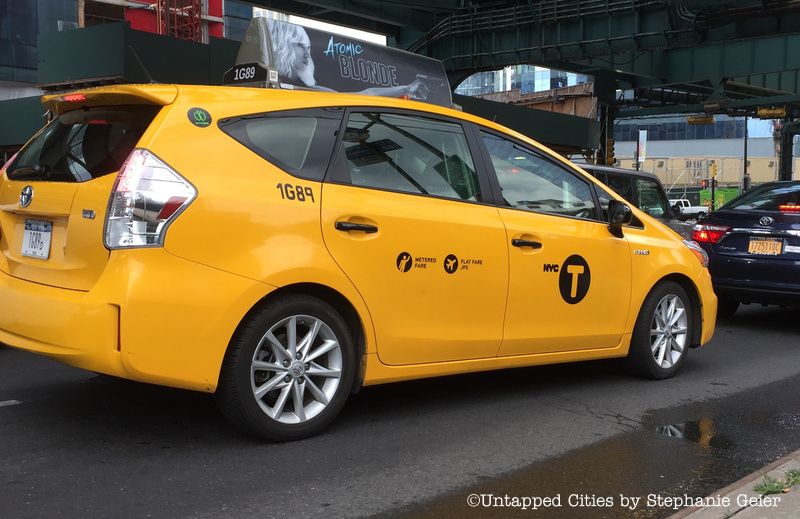
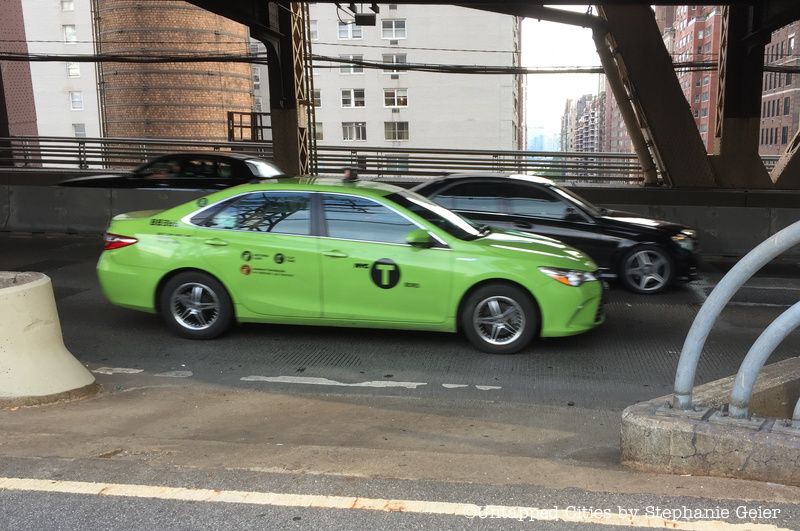 The taxi industry has incorporated new models and colors over the years.
The taxi industry has incorporated new models and colors over the years.
Furthermore, there are now different taxi models, some bigger, environmentally friendly, more location-specific and lime green, or actually orange. But despite this evolution, it looks like the classic, bright yellow taxis will remain a fixture of New York City streets, as well as an enduring symbol.
Next, check out Vintage NYC Photos: The Past, Present, and Future of the NYC Taxi and Cities 101: The Mythic Undercover Yellow Taxi Cab NYPD Cop Car.
Subscribe to our newsletter